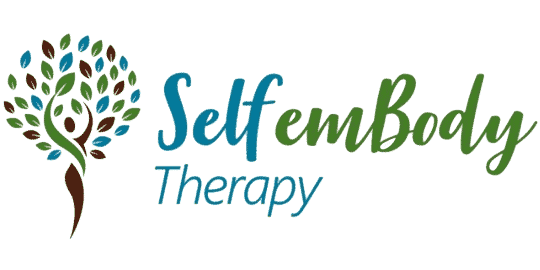Mindfulness Therapy San Diego
Are you constantly worrying about the future or ruminating about the past?
Home » Anxiety Therapist San Diego » Mindfulness Therapy San Diego
Mindfulness therapy can help you to finally feel present and peaceful in your daily life
In our fast-paced culture and society, it is incredibly common for us to experience difficulty with feeling present in our daily lives
Who Is Mindfulness Therapy For?
Mindfulness-based therapy has proven to be useful for treatment in the following conditions:
- Anxiety Disorders
- Depression
- Stress
- Trauma
- Eating Disorders
- Negative Body Image
Even if you haven’t experienced any of the symptoms above, mindfulness-based therapy can still be helpful if you feel that you find yourself feeling depressed, worrying often, and/or have a difficult time feeling peaceful and present in your body.
Mindfulness Therapy Can Help

Some Benefits of Seeing a Mindfulness Therapist Include:
- The ability to feel relaxed and peaceful in your daily life.
- Improved relationships with those around you, as you are able to feel more connected and present with others.
- Decreased feelings of stress, anxiety, depression, and overwhelm.
- Learning how to examine your thoughts in a non-judgmental way, so that you no longer feel that they hold control over you or contribute to who you are as a person.
- Overall increased joy and satisfaction in life.
To learn more about the benefits of mindfulness, check out the American Psychological Association website.
What Does a Mindfulness Therapy Session Look Like?

Why Book a Mindfulness Therapy Session with Me?

In addition to being a Psychotherapist I am also a registered yoga teacher, which has taught me numerous mindfulness techniques that I utilize in sessions with clients. These techniques have been very effective in decreasing stress, anxiety, and depression, and provide a unique blend of “talk therapy” intertwined with relaxing strategies to help clients feel comfortable during and after a session. Not only have I utilized mindfulness therapy with many different types of clients, but I have also used it in various treating settings including psychiatric hospitals, residential treatment centers, outpatient clinics, school settings, and private practice.
Are you ready to feel more joy, satisfaction, and ease in your daily life?
Contact me to schedule a 15 minute phone consultation and see if Mindfulness Therapy in San Diego is right for you!
My Standard Rate is $200 Per Session (50 Minutes)
As an out-of-network provider, I have partnered with Mentaya to help my clients save money on therapy. Use the out of network benefits calculator to see if you qualify for reimbursement for my services. Learn more about my rates and insurance.
You may have some questions about seeing a mindfulness therapist...
Will mindfulness-based therapy work for me?
Though you will never truly know if mindfulness treatment will work for you without trying it, research has shown mindfulness therapeutic modalities to be highly effective for a variety of different conditions. Mindfulness-based therapy can provide you with an array of coping skills that you can learn in therapy and continue to implement in your daily life, long after our time in therapy together is over.
I’ve never tried meditating before... will I be able to do mindfulness-based therapy?
You don’t need to have any prior experience with meditation or mindfulness activities in order to do mindfulness-based therapy. I will guide the way and teach you any mindfulness exercises that I feel could be helpful for your individual circumstances. Here is an article that I contributed to and shares others peoples stories on the benefits of meditation.
I’ve tried meditating before and I really didn’t like it. Is mindfulness-based therapy still a good option for me?
Mindfulness-based therapy does not necessarily need to involve any type of meditation. There are a variety of other techniques that include both “talk therapy” and relaxation techniques that we can implement in mindfulness-based therapy. However, something that I come across often is that clients have had a negative experience with meditation in the past if they felt like they weren’t doing it right because they couldn’t seem to “turn their thoughts off”. The point of meditation is not to turn our thoughts off (this is actually impossible), but to learn to detach from them and observe them in a non-judgmental way. Even if you’ve had negative experiences with meditation or mindfulness exercises in the past, we can always re-visit them if you’d like or we can just try new ones!
How many sessions of mindfulness therapy will I need?
Every client is an individual and has unique treatment goals and considerations. Therefore, there is no set number of mindfulness-based therapy sessions that will fit for everyone. However, studies have shown that individuals can find relief from anxiety, stress, depression, and other symptoms quite quickly by beginning to implement mindfulness techniques into their daily life.
I haven’t been diagnosed with anything, but I do feel like I worry a lot and am stressed often. Will mindfulness-based therapy help me?
If you find yourself worrying often and have difficulty calming down or relaxing, mindfulness-based therapy could be very helpful for you. Mindfulness-based therapy can also be helpful for those that find themselves feeling stressed or tense often. In addition to stress reduction, some other empirically-supported benefits of mindfulness include: reduced rumination, less emotional reactivity, improved focus, and increased health benefits.
Symptoms and Disorders that Mindfulness Therapy is Used for:
- Generalized Anxiety Disorder (GAD) - A condition in which an individual experiences excessive worry about a number of different things (personal health, work, relationships, finances, etc) most days, for at least 6 months. The fear and anxiety can cause significant problems in areas of their life including work, social relationships, and more. Learn more about anxiety therapy and anxiety symptoms.
- Other Specified Anxiety Disorder - Symptoms of an anxiety disorder cause significant distress or impairment in social, occupational, or other important areas of functioning but do not meet the full criteria for another anxiety disorder diagnosis.
- Major Depressive Disorder - A variety of symptoms occurring within the same two week period that represent a change from an individual’s previous functioning; these can include symptoms such as loss of interest or pleasure in daily activities, depressed mood most of the day nearly every day, significant changes in sleep or appetite, fatigue or loss of energy, feelings of worthlessness or guilt, difficulty concentrating, and more. Learn more about depression therapy and depression symptoms.
- Persistent Depressive Disorder - Depressed mood for most of the day, for more days than not, ongoing for at least two years.
- Other Specified Depressive Disorder - Symptoms characteristic of a depressive disorder that cause clinically significant distress or impairment in social, occupational, or other important areas of functioning predominate but do not meet the full criteria for another depressive disorder diagnosis.
- Eating Disorders - Eating disorders are characterized by a persistent disturbance of eating-related behaviors that results in the altered consumption or absorption of food and that significantly impairs physical health or psychosocial functioning. Eating disorders can negatively impact an individual’s physical health, relationships, work/school functioning, and overall self-esteem. Learn more about eating disorder therapy and eating disorder symptoms.
- Poor Body Image - Poor Body Image refers to an unrealistic (and often negative) view of how someone sees their body; this can lead to feelings of decreased self-esteem and low self-worth. Learn more about body image therapy and associated symptoms.
- Post Traumatic Stress Disorder (PTSD) - A condition in which a person has difficulty recovering after experiencing or witnessing a traumatic event. Some symptoms may include feelings of distress, physical reminders of trauma (nausea, sweating, pounding heart), intrusive thoughts and memories, flashbacks, nightmares, feeling emotionally detached, loss of interest in life and daily activities, and avoidance of specific events/feelings that serve as a reminder of the traumatic event. Learn more about PTSD and trauma therapy and the associated symptoms.
- Trauma - Even if you do not meet the full criteria for PTSD (above), EMDR can also be incredibly helpful for individuals that have experienced any type of trauma throughout their lives.
- Stress - Feeling overwhelmed or unable to cope due to difficult emotions, daily responsibilities, or activities. Feelings of stress can manifest in both physical and emotional ways. Learn more about stress therapy and symptoms of stress.
Mindfulness Therapy in San Diego
If you’re ready to feel relaxed in your daily life and learn more about our mindfulness therapy services, please use the button above or call (619) 800-5393 for a free 15 minute phone consultation.
EMDR, Eating Disorders, Anxiety
5330 Carroll Canyon Rd Suite 120,
San Diego, CA 92121
(619) 800-5393
